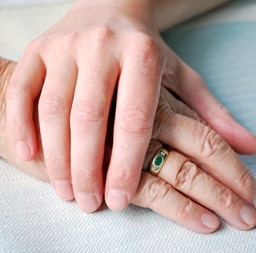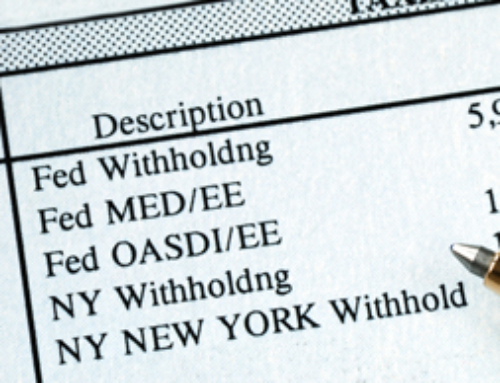 Are you feeling the squeeze? If your children are going off to college, or if they are getting married, they’re likely incurring heavy-duty costs. At the same time, your parents may be getting older and starting to need more care, time, and attention—and, perhaps, money. Or you may have siblings or relatives who are incapable of supporting themselves. If any of these scenarios sound familiar, I have a bit of good news for you: you may be able to get some tax deduction help.
Are you feeling the squeeze? If your children are going off to college, or if they are getting married, they’re likely incurring heavy-duty costs. At the same time, your parents may be getting older and starting to need more care, time, and attention—and, perhaps, money. Or you may have siblings or relatives who are incapable of supporting themselves. If any of these scenarios sound familiar, I have a bit of good news for you: you may be able to get some tax deduction help.
It’s not unheard of to be paying over $5,000 per month for in-home care for aging family members. And one friend told me it costs $7,500 a month for her dad’s support in a board-and-care home. This is a huge amount to fit into your budget if you don’t have long-term care coverage.
November is National Family Caregivers Month, and it’s time to give caregivers some help. The government has some resources for caregivers for emotional help, and I may be able to help you with saving money.
Share the cost of long-term care and dependents
In a family comprised of several children, the financial costs of caring for aging parents can be shared by all of the children that can afford it. It’s also possible that other relatives can chip in. With several people sharing the costs, no one is stuck paying more than half of the parent(s)’ support.
And there’s a tax loophole for this situation. Form 2120, the Multiple Support Declaration, allows people who share the support costs to designate who will claim the dependent(s). Family members may take turns, with a different person claiming the dependent each year.
If there is a situation where one person gets a much better tax benefit from this claim, all involved could agree to give that person the dependent—and split the tax windfall. The person who gets to claim a family member not only gets a dependent, he or she gets to be head of household, if he or she is single. And he or she may also take a deduction for the dependent’s medical expenses.
Which medical expenses are deductible?
You probably already know which doctor bills and prescriptions are deductible. But did you know that the full cost of a residential facility might also be deductible? You betcha! Be sure to get paperwork from a doctor spelling out that the person can no longer live independently and must live under supervised care.
With that valuable piece of paper, you can deduct the cost of the rent, the meals, and all the supplies—usually bundled into one fee. Of course, the cost of manicures and personal outings are not included. Be sure to get the monthly or annual statements from the facility showing the total paid.
Note that you may only deduct the expenses you paid—not the total cost paid by all family members.
Special tax trick to dramatically increase medical benefits
Family members should get together at the beginning of each year and decide who gets to claim the dependent. Those who won’t be able to use the medical deductions can gift their monthly payment to the person who will claim the dependent that year.
The person who claims the dependent will pay all the bills—and get the full benefit of the medical expense deductions. Instead of being able to deduct one-third of the cost—say $20,000—the person would be able to deduct the whole $60,000.
In this case, there may be some gift tax forms that need to be filed, but no gift tax needs to be paid.
READ MORE:
Making Sure You Get the Adoption Tax Credit
Filing Taxes: Seven Reasons to Adjust Your Withholding
Paying Taxes: How Is Your Vice Taxed?
Eva Rosenberg, EA, is the publisher of TaxMama.com®, where your tax questions are answered. She teaches tax professionals how to represent you when you have tax problems. She is the author of several books and e-books, including Small Business Taxes Made Easy. Follow her on Twitter: @TaxMama






